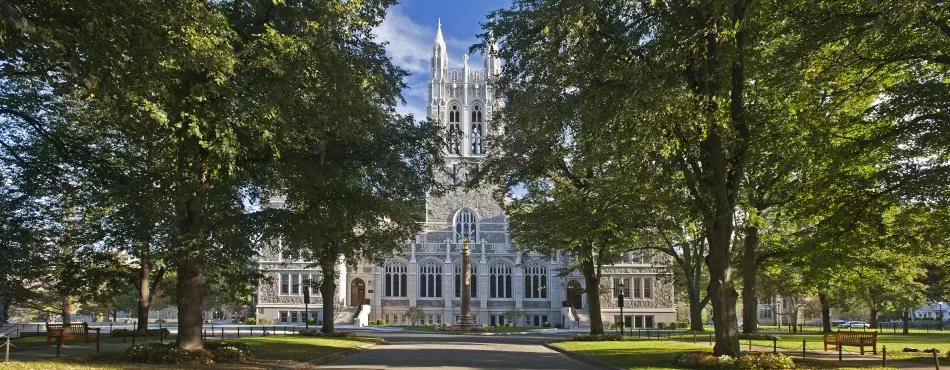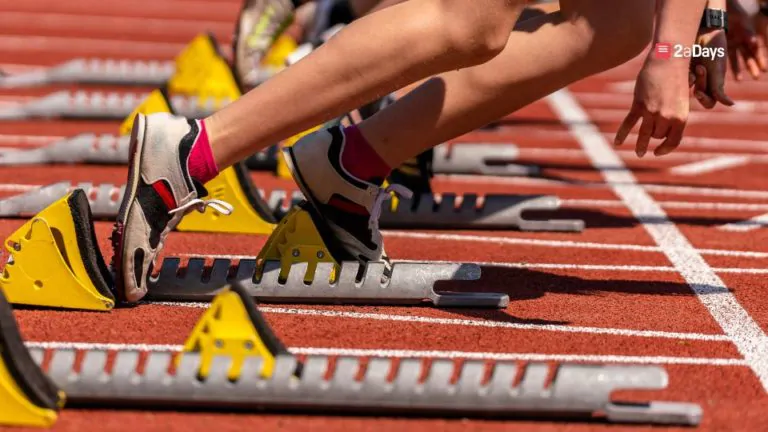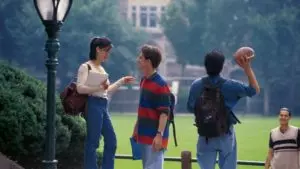2aDays sat down with David Weber from the Boston College Admissions office and asked him what they look for in a potential student-athlete.
Q: What should a student-athlete not do during the admissions process?
Admissions: I think for any student-athlete, and this would go for any candidate, what they do not want to do is lessen their academic record or decrease their attention to their academic studies. For an athlete, I think this just comes naturally. The emphasis on a strong finish as it would be in their sport should also be the emphasis on the application process. You may be a recruited athlete, you may have committed to a university, and that college may have committed to you, but from an admission standpoint, we are expecting that student to finish strong. So, what they should not do is lessen their attention to their work in high school. I also think they should not solely look at an university-based of the athletic opportunity that exists for them. They need to know the type of community they are enrolling themselves into in the event that volleyball, soccer, fencing, or rowing isn't going to be an option after a year or two due to injuries or due to their personal preference. The coach might even leave the school and not be apart of our program. I think it is natural for students to focus heavily on the athletic piece of the opportunity, but they should not solely do that, they should look towards what kind of community exists and what they want to be surrounded with if the sport they play did not exist.
Q: In your opinion, how much does being an athlete affect the admissions process?
Admissions: I think it varies by sport, it varies by the student as well. There are some students that coaches would endorse, and there are other students that coaches would say: if they are admissible to Boston College on their own we will consider them a walk-on, but they are not going to get an extra endorsement from our program. Boston College is a DI institution that values those who are being recruited to play in the DI athletic program, so there is a consideration there. It is our job as an admissions office to make sure that if a coach brings a student to our attention that they want that recruit. If a coach is telling us in the admissions office that they want to have that student as part of their program, it is our job to say, okay. We understand, but from the academic standpoint and the admissions standpoint, we ask ourselves has this student done everything that they should have. Knowing that a ton of the academic profile may look a little bit different than other students that would be admitted without that endorsement but with the support that comes from the coaching staff and the program, does that student show signs that they would be able to find success here as well.
Q: What are the qualities you look for when taking on a student-athlete?
Admissions: We look for two different qualities. One, certainly the academic piece which we touched on. We want to make sure the students have prepared themselves to enter into a Boston College classroom and be successful. For students that are international students and they don't come from English speaking countries, certainly English proficiency is a big part. The way English is intertwined throughout the entire curriculum, everything is writing-intensive up to some extent and from a comprehensive standpoint. Students need to have proficiency there. We look for that but also recognizing that if you look at the caliber of a student that generally applies to Boston College but is admitted and then enrolls in the institution, you are looking at some of the top students across the country. For any student-athlete that is coming into Boston College whether they are in that top band, or they may sit just below that top band of students, they need to know that the conversations that exist are high intellectual discussions. Expectations from faculty are high, so we need to make sure academically they have prepared themselves. That is the academic point, and then there is the human point as well. We want to make sure that student-athletes come to Boston College knowing what the university is outside of the athletics department and we want to know what kind of citizen they are going to be. Who are they going to be within the athletic department and the more significant BC community? Our preference would be for the student who is interested in sharing their life, whether it is through athletics, through their academics or the arts. Sharing their life with other people as well because that only strengthens the community around us. These are the things that we would look for, and we do that in some of the materials that are presented to us in the application. The student's writings, essays, recommendations, the academic piece which is data and transcripts in test scores, but it is also what the teachers say in their recommendations. When we interview a student-athlete, I understand that it is probably not the most comfortable environment for that student because they are on their official visit, they are meeting with admissions, and they don't know exactly what the expectation is. We want to see that they can carry a conversation with us, that they know what to expect once they get here. We want to know if they have any anxiety, concerns or fears about either coming from South America to come to Boston College or coming from Connecticut to come to Boston College. Let's talk about it because I want to know that they are human and that they are thinking about this beyond being on the court or the field.
Q: When reaching out to a potential student-athlete, will the first contact come from the coach and if not where will it come from?
Admissions: We would never be the first contact to a prospective student-athlete. They could potentially reach out to us, but we wouldn't necessarily know if that was the case. They can email admissions office and request material or information, but when it comes to coaches and contacting the athletic program, I think NCAA compliance has a structure set of rules of when you can contact and reach out to coaches. So, I would say that in most cases, it would either be the student directly reaching out to the coach or the coach directly reaching out to the student, it would never occur from admissions.
Q: How does a college admission office work with NCAA offices to evaluate initial-eligibility standards for academic and athletic participation? Does this process differ in any level when it comes to international student-athletes? How?
Admissions: There are four parts to this: there is the student, the coach, the NCAA compliance office, and then there is the admissions office. This is how it works, let's say the student and the coach have sparked a relationship, the students reached out to let the coach know they are interested in the program. They then need to, from the athletic standpoint, send a tape or from the academic standpoint see what kind of student they are. The coach would ask the athlete for their test scores, SAT or ACTs, and academic transcripts. What we prefer to see is academic transcripts through their junior year of high school. If it is between the summer of their junior and senior year, we certainly want to see what kind of classes they are going to take their senior year and whatever testing they have taken up to that point. We require an SAT or ACT at Boston College, so we are going to want to see what their testing history is. The coaches are expected to accumulate that information and then process it through compliance, and then NCAA compliance presents it to the admissions office. Then we evaluate it, and if we think it's good, then we let compliance and coaches know that they can continue, and progress with the candidate. Compliance is an excellent resource for us, and I think we are for compliance and the coaches, too. Compliance oversees so many different things, and there are all these rules within the NCAA that as an admissions officer. I may not be an expert in all of them so we need compliance in the case we have questions about how some of those regulations work and vice versa. For international student-athletes, we indeed go through the same process only that they also require TOEFL testing, so it is not a significantly different from kids applying in the U.S.
For more interviews with college admissions officers, sign up for the 2aDays Varsity Membership.
If you have any questions about applying to Boston College you can reach out to their admissions office http://www.bc.edu/admission/undergrad/contact.html
Updated 1/7/19
Edited by Brandon Sires
* Originally published on January 7, 2018, by Barbara Gonzalez







